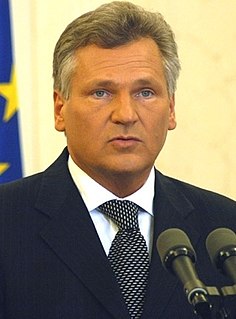A Quote by Ronen Bergman
In the late 1980s, the United States and Israel believed that they had good intelligence on Iraq, but they missed the extent of Saddam Hussein's pursuit of unconventional weapons - until after he invaded Kuwait.
Related Quotes
It was not the United States who invaded Kuwait; it was Iraq. It was not the United States that went to war with Iran; it was Iraq. It was not the United States that fired chemical weapons at Iran; it was Iraq. And it was not the United States that murdered innocent Iraqi citizens with chemical weapons; it was Iraq.
When the United States invaded Iraq, a New York Times/CBS News survey estimated that 42 percent of the American public believed that Saddam Hussein was directly responsible for the September 11 attacks on the World Trade Center and the Pentagon. And an ABC news poll said that 55 percent of Americans believed that Saddam Hussein directly supported al-Qaeda. None of this opinion is based on evidence (because there isn’t any).
There is no question that Iraq possesses biological and chemical weapons and that he [Saddam Hussein] seeks to acquire additional weapons of mass destruction, including nuclear weapons. That is not in debate. I also agree with President Bush that Saddam Hussein is a threat to peace and must be disarmed, to quote President Bush directly.
I come to this debate, Mr. Speaker, as one at the end of 10 years in office on the Permanent Select Committee on Intelligence, where stopping the proliferation of weapons of mass destruction was one of my top priorities. I applaud the President on focusing on this issue and on taking the lead to disarm Saddam Hussein... Others have talked about this threat that is posed by Saddam Hussein. Yes, he has chemical weapons, he has biological weapons, he is trying to get nuclear weapons.
We believe, from everything we have been told by the intelligence community, by 12 years of history with Iraq, by the experience of the U.N. inspectors and by other intelligence agencies in other countries that Saddam Hussein had the intention to develop weapons of mass destruction and to have such weapons, and that was a sound judgment which I still believe to this day because he had had them in the past, he'd used them in the past.
There's no telling what might have happened to our defense budget if Saddam Hussein hadn't invaded Kuwait that August and set everyone gearing up for World War II. Can we count on Saddam Hussein to come along every year and resolve our defense-policy debates? Given the history of the Middle East, it's possible.
My position on that has been misrepresented again and again and again in the media. Let me make it clear. There are two wars in Iraq. The first one was absolutely necessary and entirely justifiable. Saddam Hussein had attacked and invaded Kuwait, a sovereign independent state, it was a blatant act of aggression, and action was justifiable and necessary. I have no problems with that at all.
































